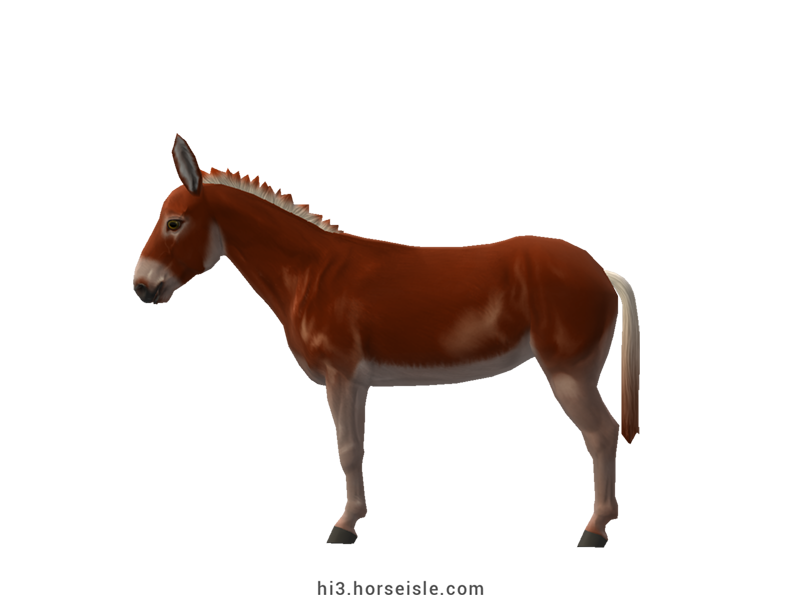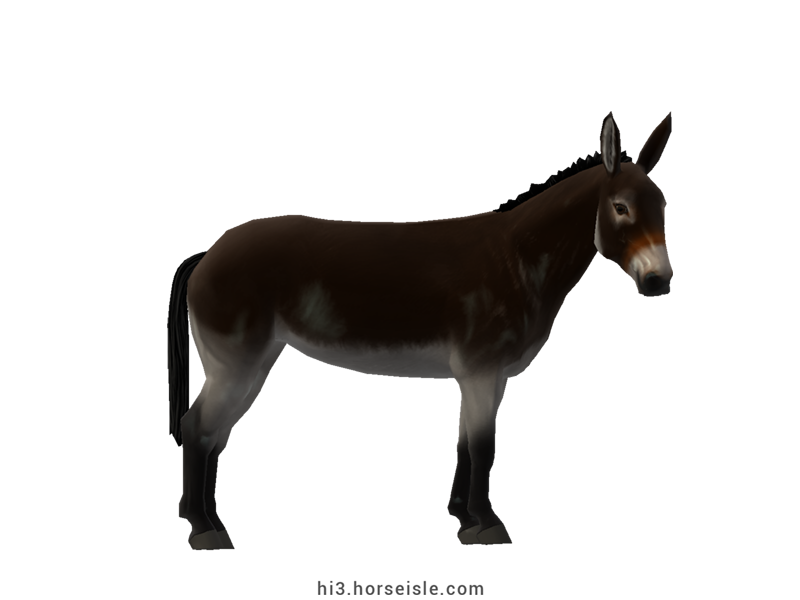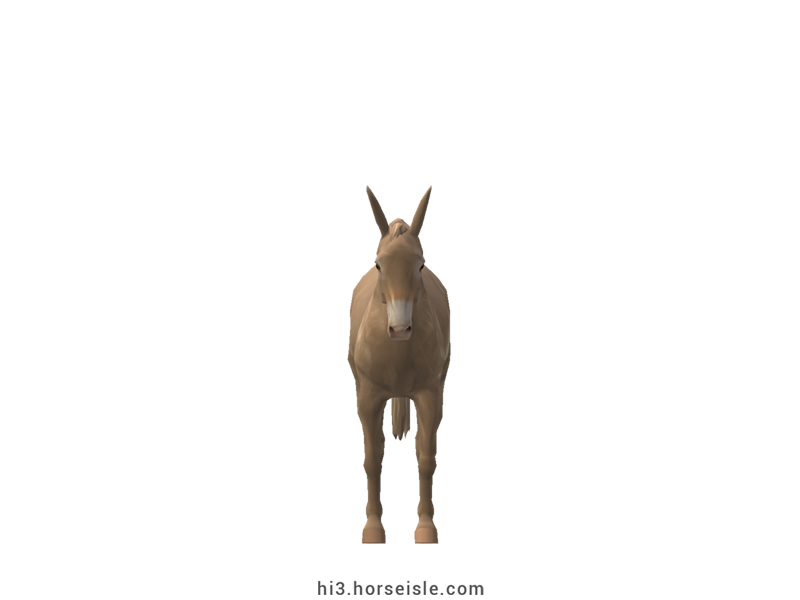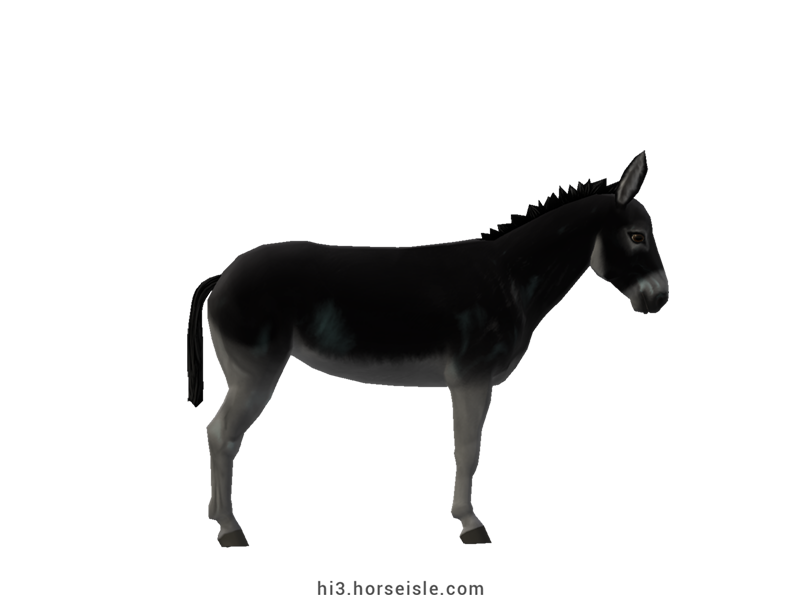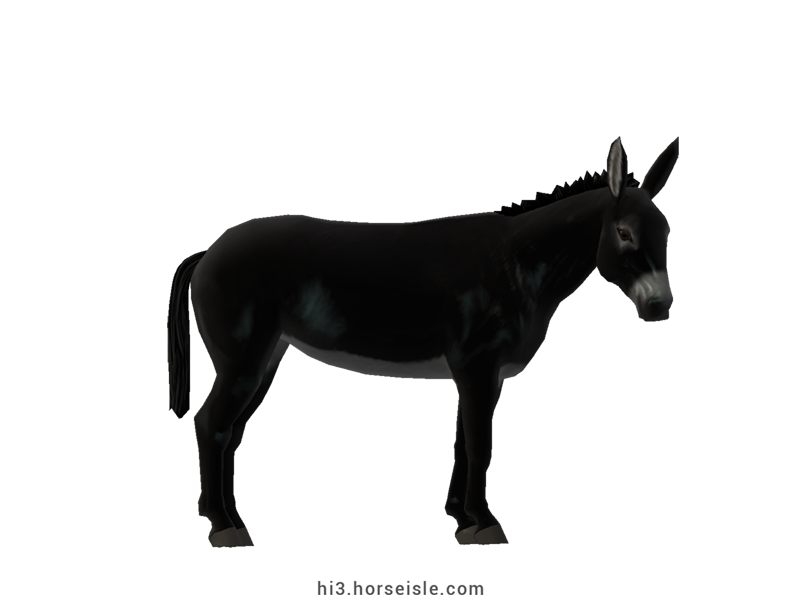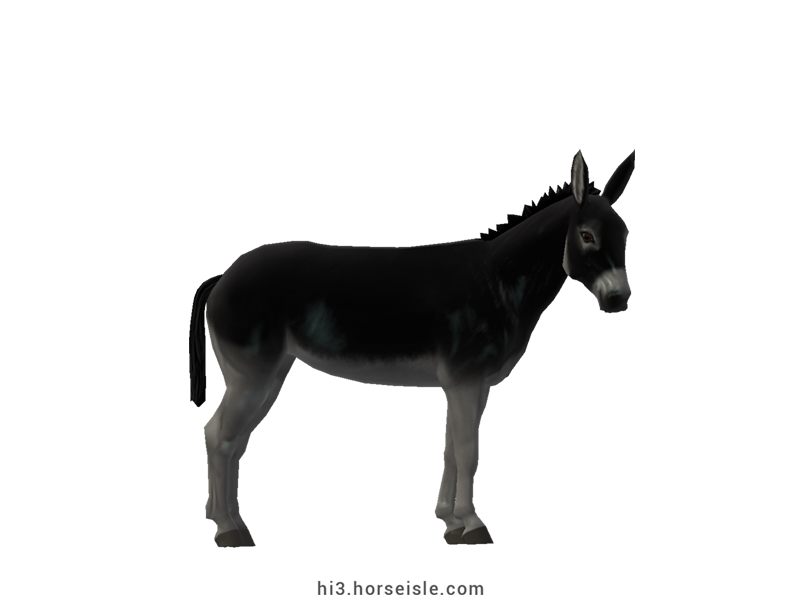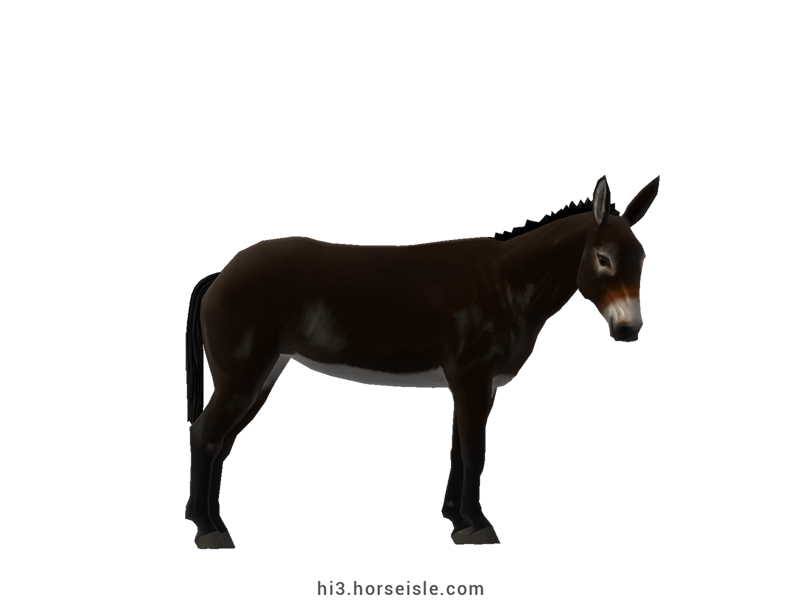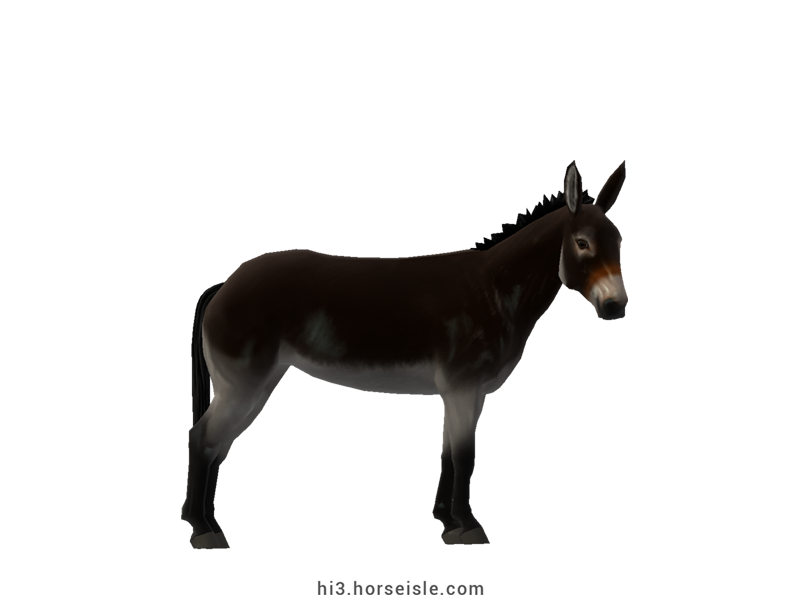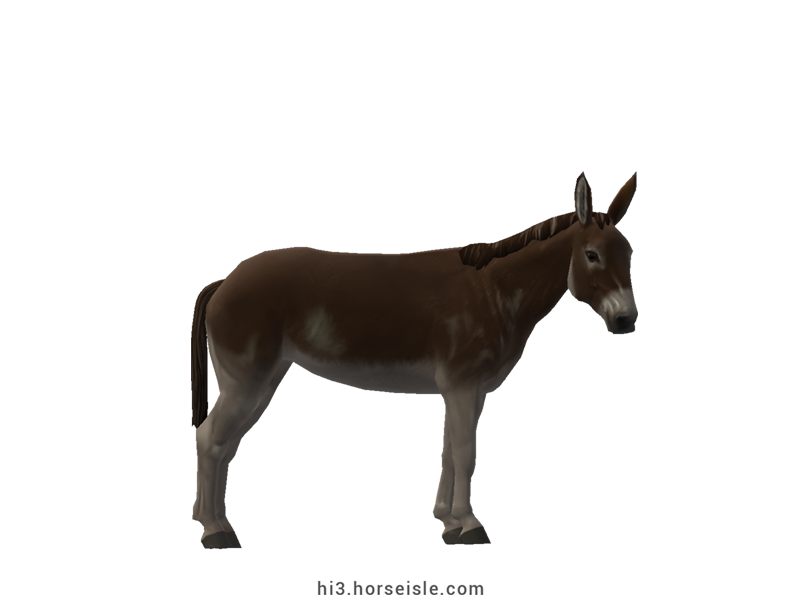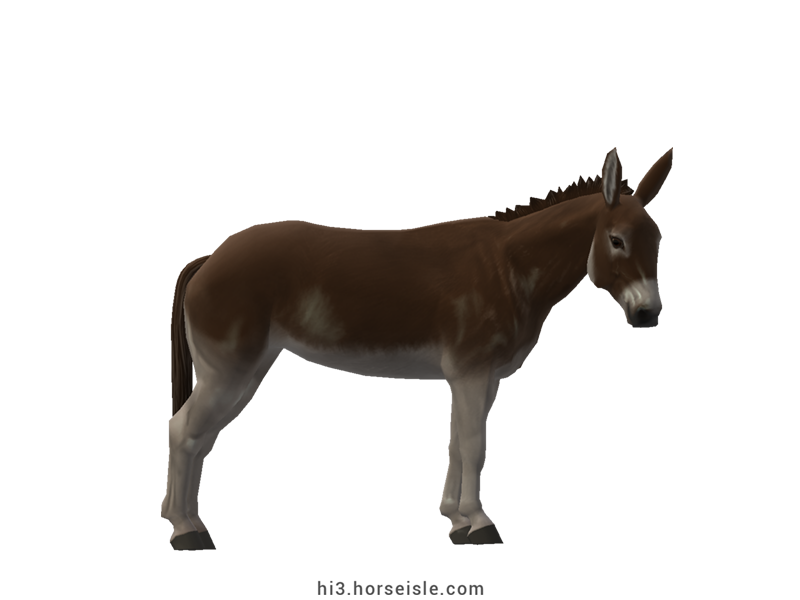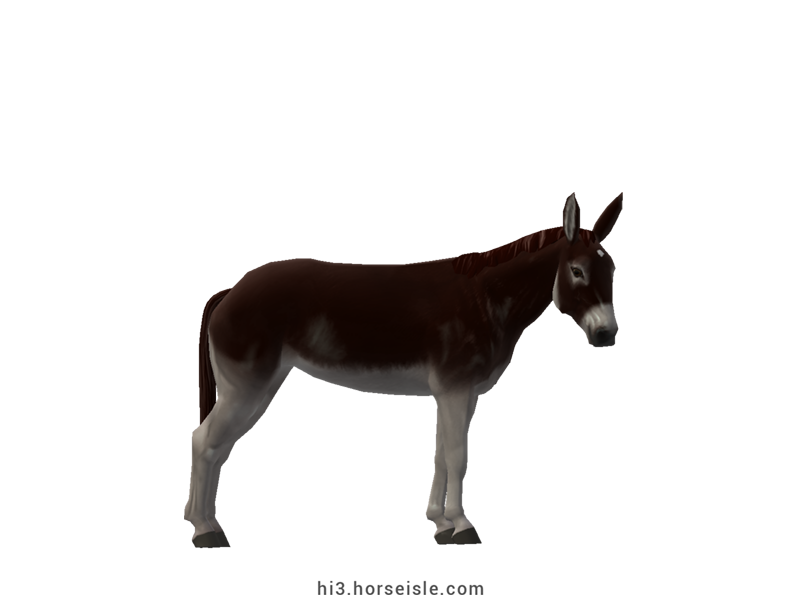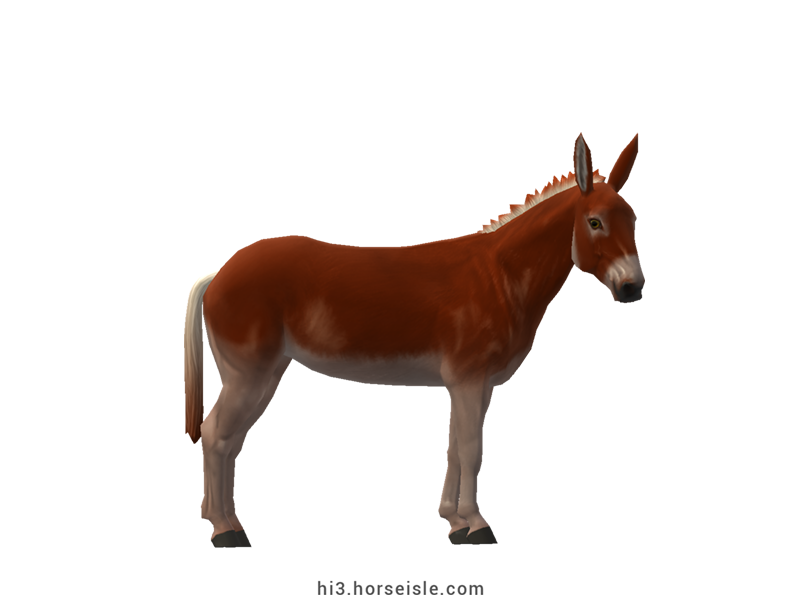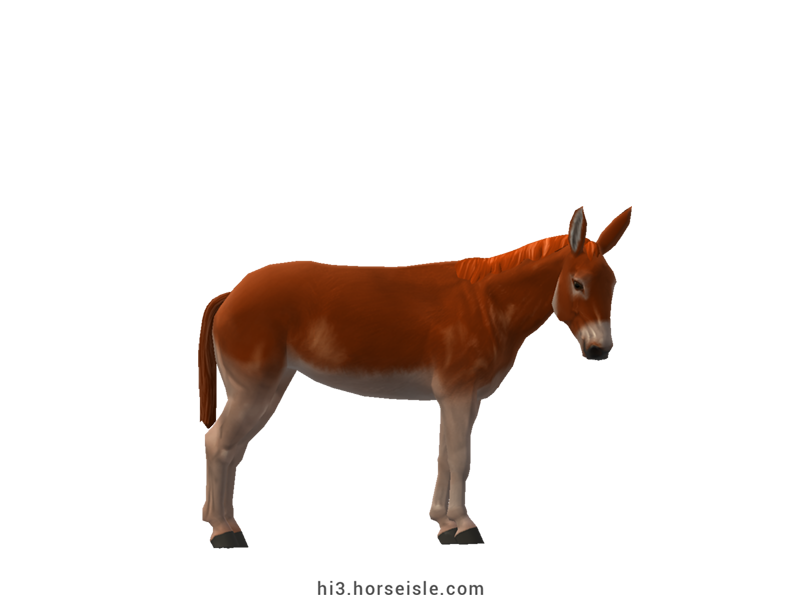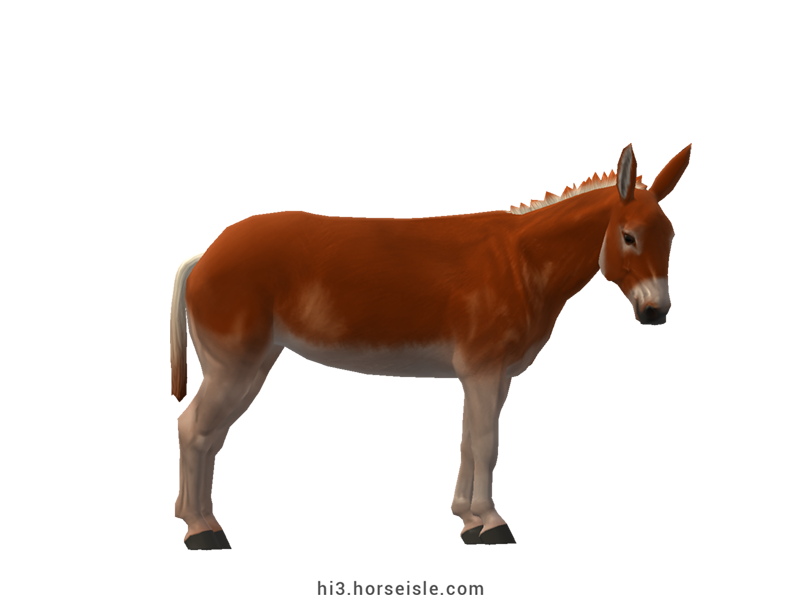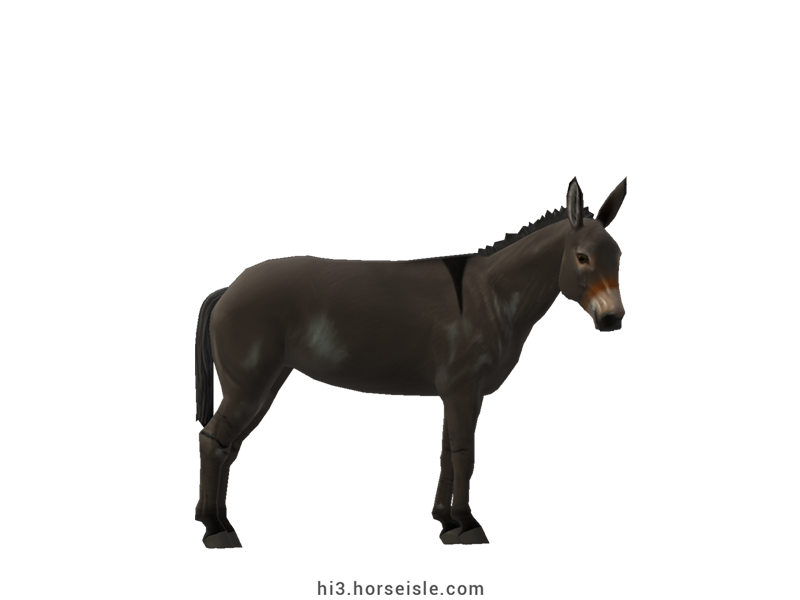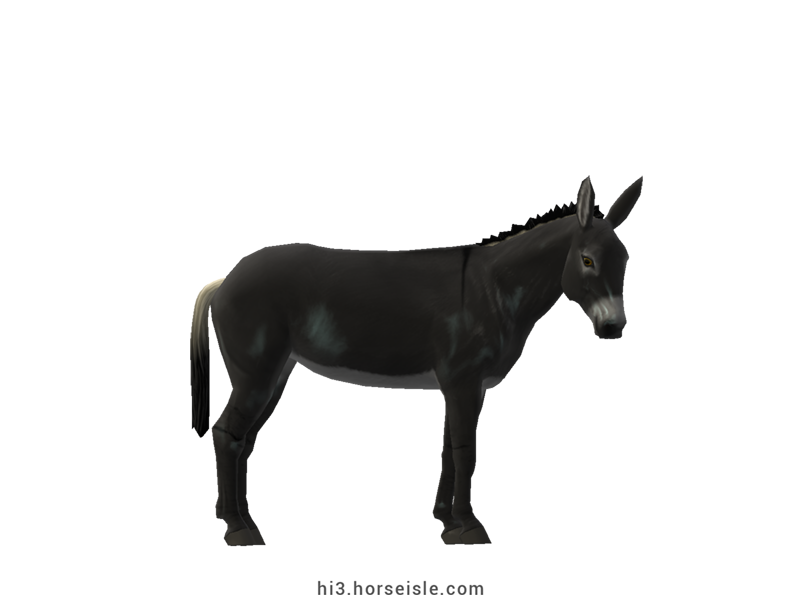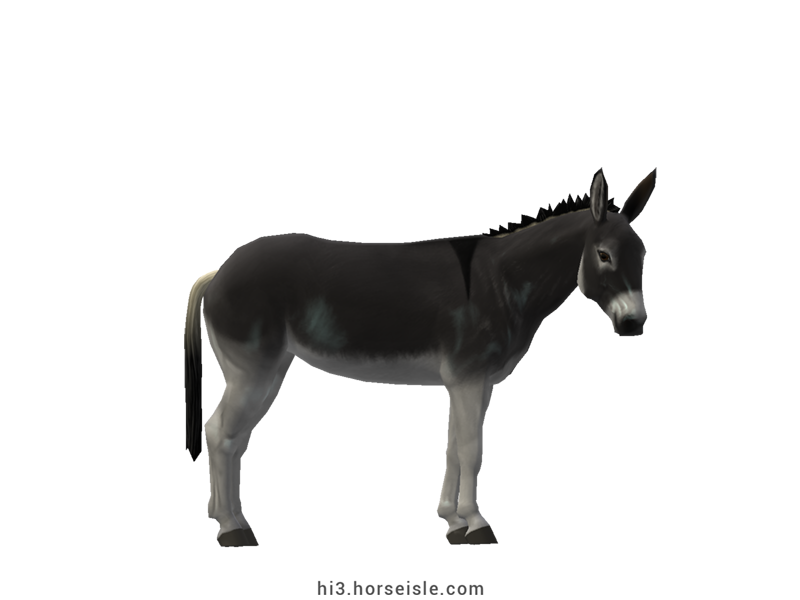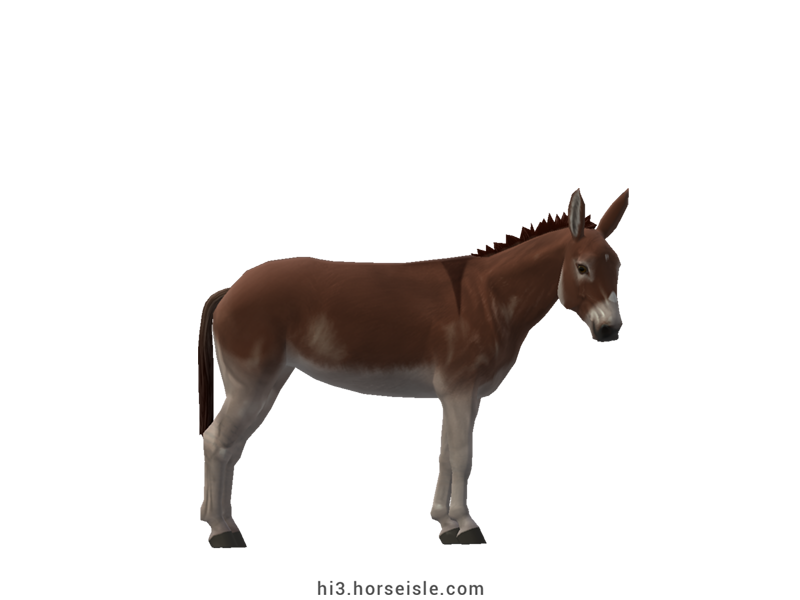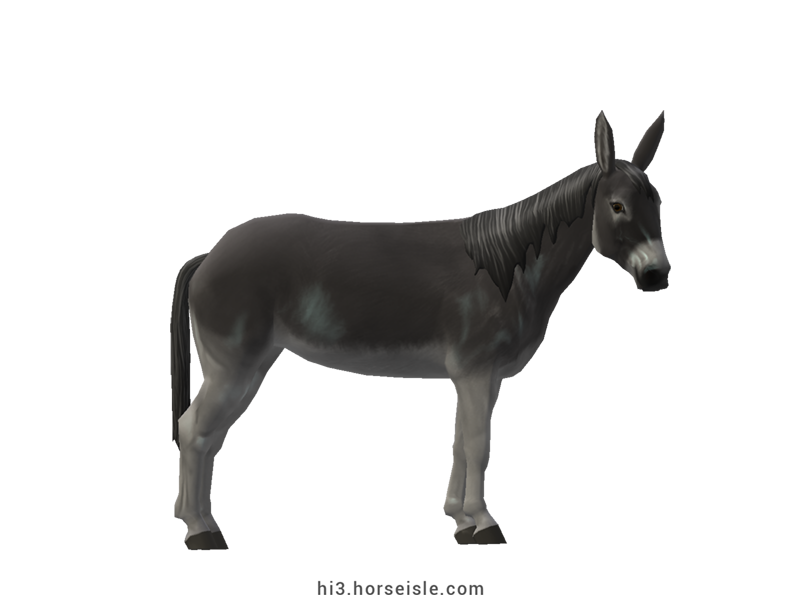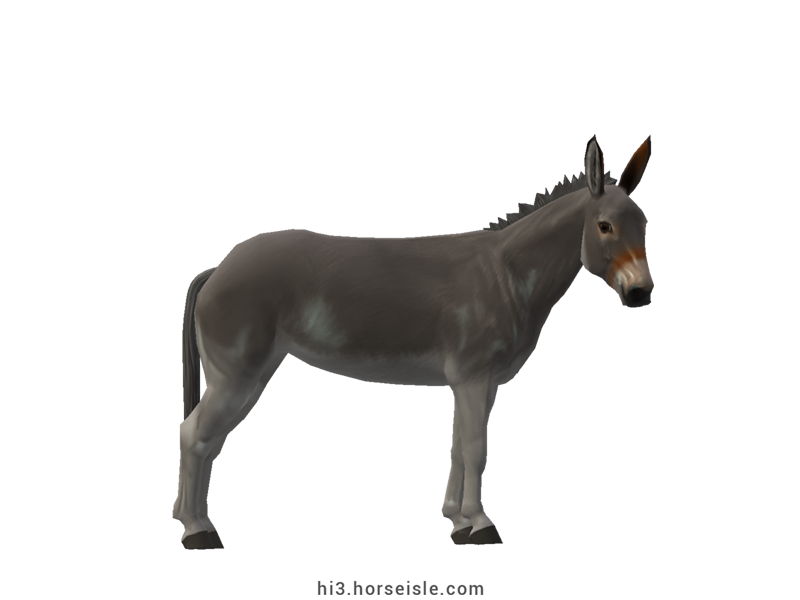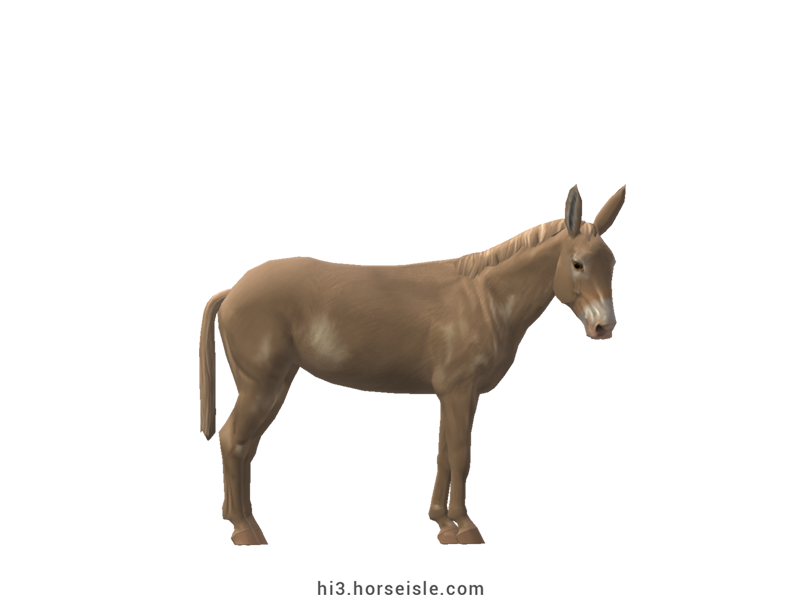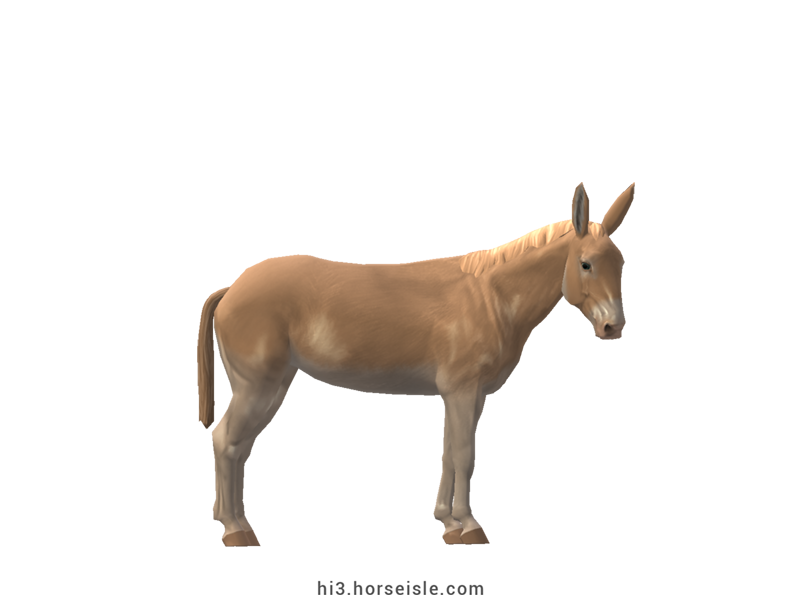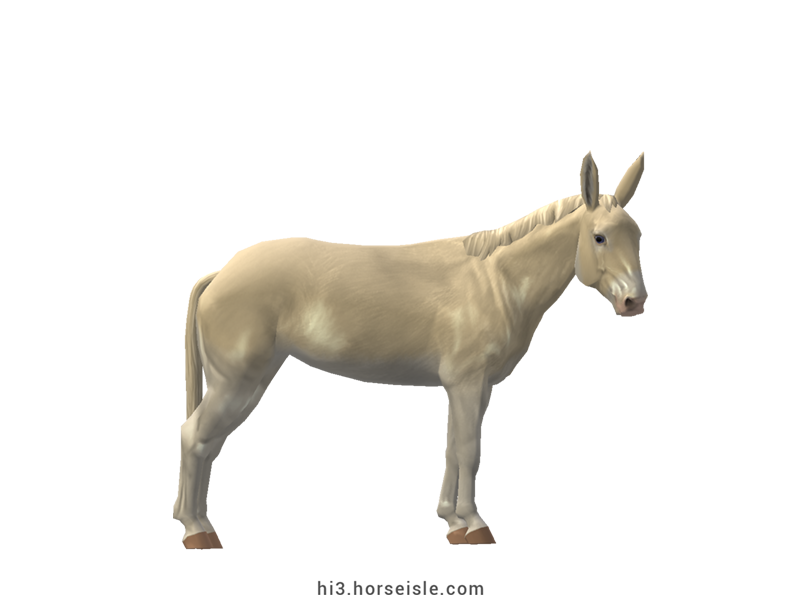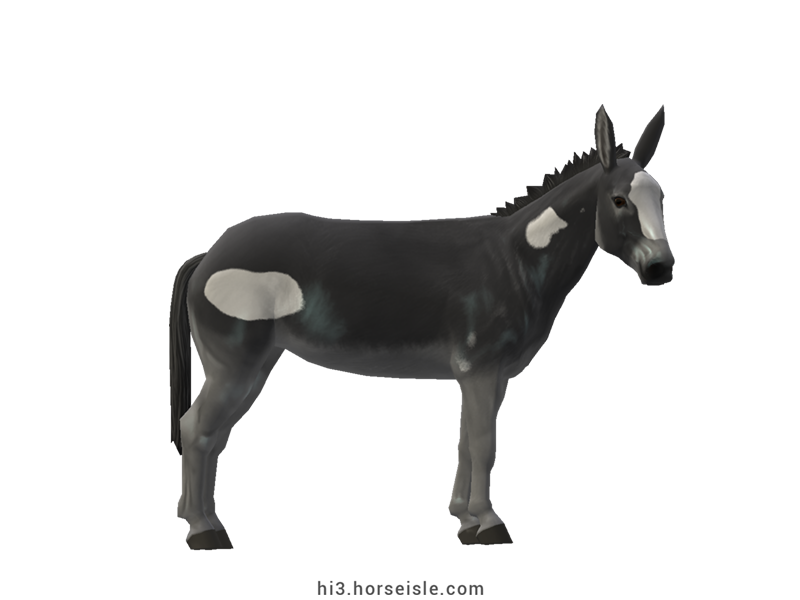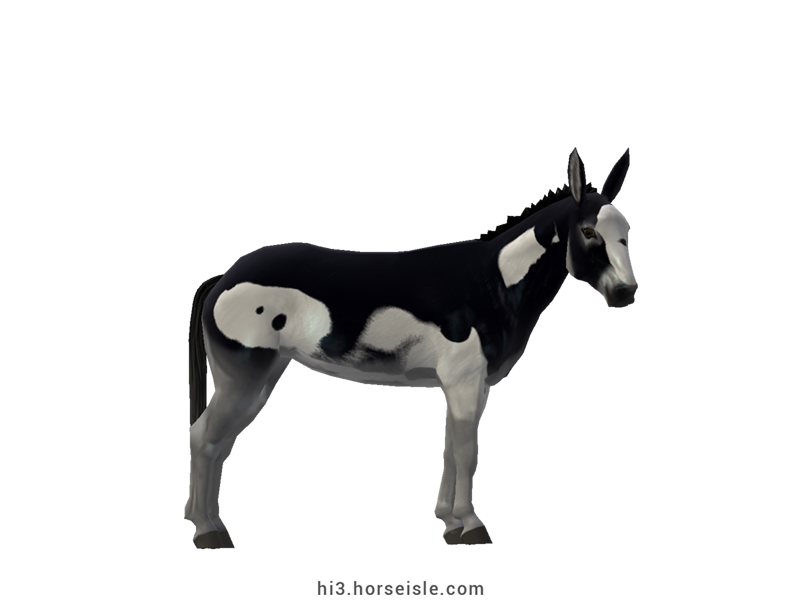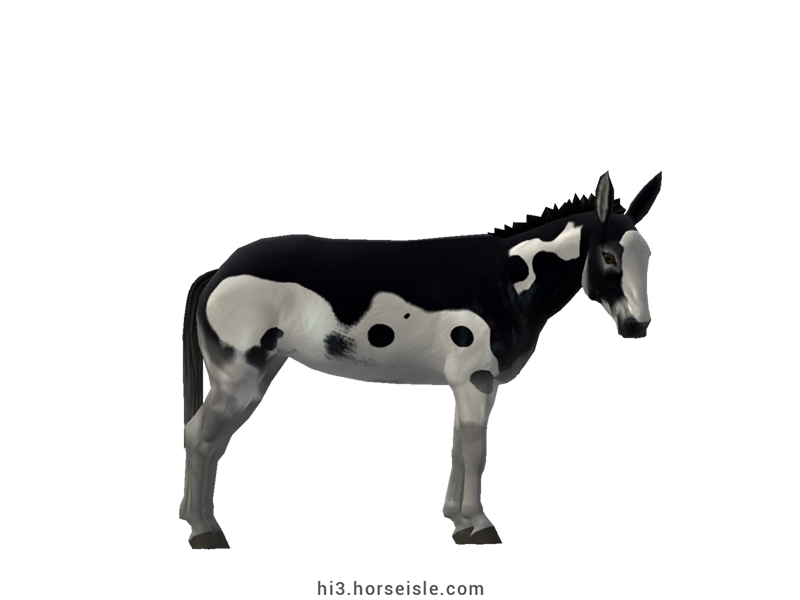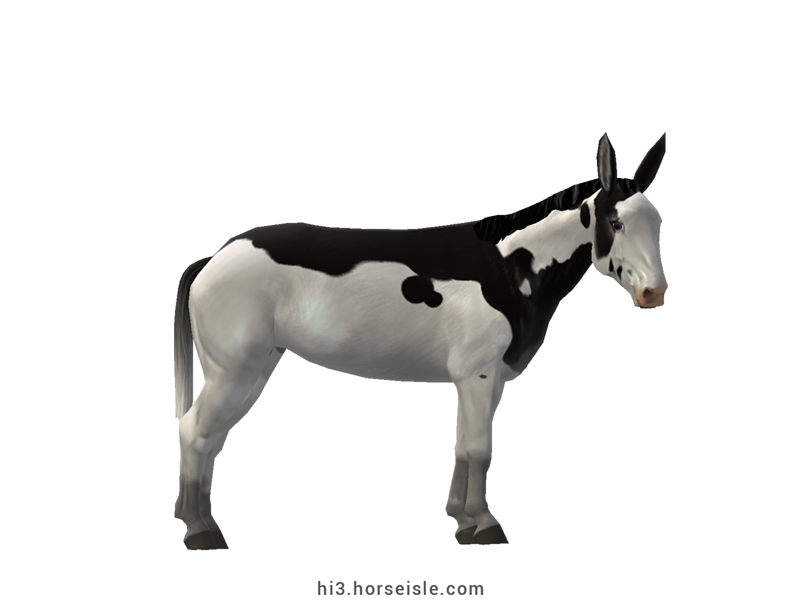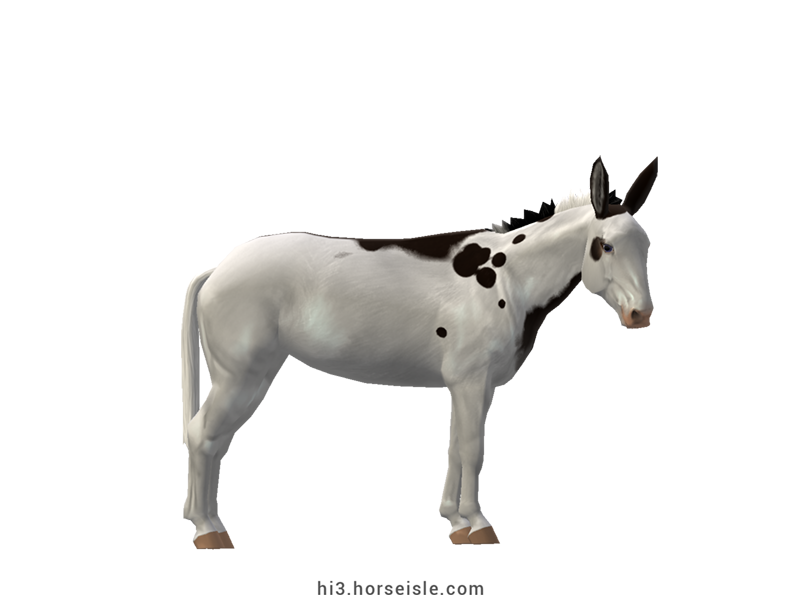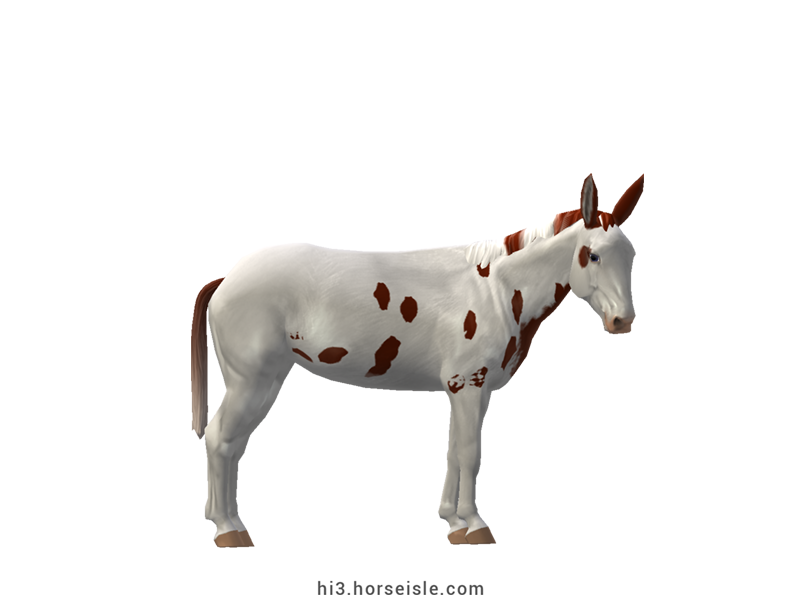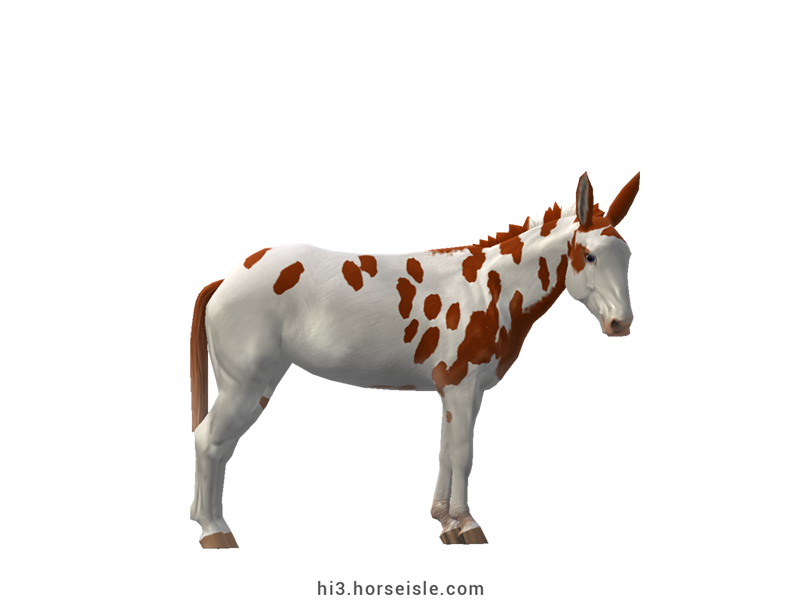Our Massive Real World Equine Reference!
[ INDEX ] Equine Type: Donkey Breed: American Mammoth Jackstock [ PREV ] [ NEXT ]
Origins & History:
The story of the Mammoth Jackstock begins with the story of three large Andalusian donkeys and three large Maltese donkeys, that were gifted to George Washington during the second half of the 18th century. Washington, used the jacks to produce storing mules, and decided along with additional breeders to create a large and sturdy local donkey breed, which will be used as breeding stock for mules.
As such, Catalonian, Andalusian, Poitou, Maltese, and Majorcan donkeys, who were imported from southern and western Europe to the United States during the second half of the 18th century. These breeds were crossed with each other to give rise to a local American breed of a large donkey. Over the next several decades, new donkeys were constantly imported from Europe in order to add new blood to the local stock. The local breed became known as American Mammoth Jackstock.
By the middle of the 19th century, the Mammoth Jackstock was a well-established breed for the successful production of mules for riding and draft work. It suffered a sharp decline in numbers during the 1950s and 1960s due to the mechanization of agriculture, which rendered mules largely obsolete. While the Mammoth Jackstock regained some popularity during the 1980s, it is still considered an endangered breed by today's standards.
The American Mammoth Jackstock today:
Today, the Mammoth Jackstock is usually used for recreational riding and leisure rather than for producing large mules, although some Mammoth Jackstocks, especially sorrel ones, are used for the production of mules. Furthermore, some American Mammoths are gaited, and can be suitable for trail riding.
Subtypes:
Traditionally, American Mammoth Jackstocks were bred to have dark colors, because during the 18th, 19th, and 20th centuries, the preference was to breed dark mules (see the 'Percheron Mule' for more information).
During the 20th century, some breeders began to breed herds of sorrel American Mammoths, in order to create sorrel mules, primarily of the Belgian type (see the 'Belgian Mule' for more information).
This tradition of breeding only-dark and only-sorrel herds carries on to this very day, which is why both of these sub-types are found in Horse Isle (see the 'Dark American Mammoth Jackstock' and 'Sorrel American Mammoth Jackstock' for more information.)
Conformation:
Regardless of their color, all American Mammoth Jackstocks share the same characteristic conformation, which is lean yet massive. The head is large and has long ears, the profile is either straight or convex, the croup is sloping, and the legs are long and have large and sturdy joints.
Performance metrics:
The following are the: range, average, (SD), and MOE of performance metrics of ordered American Mammoth Jackstocks in Horse Isle (not bred ones). In rare cases,
Speed: 14.2-15.5, 15.0 (0.3), 0.05.
Sprint: 31-43, 37 (3), 0.52.
Accel: 0.69-0.89, 0.77 (0.04), 0.01.
Decel: 0.79-0.97, 0.87 (0.04), 0.01.
Jump: 4.88-5.34, 5.09 (0.08), 0.02.
Pull: 1.67-2.76, 2.16 (0.23), 0.04.
Turning: 35.25-47.98, 41.40 (2.52), 0.49.
Reverse: 1.9-2.5, 2.2 (0.1), 0.02.
Stamina: 51.22-60.71, 55.31 (2.33), 0.46.
Reaction: 0.72-0.84, 0.79 (0.03), 0.01.
Colors:
American Mammoth Jackstocks come primarily in the colors of black, brown-black, grey, chestnut, sorrel, and roan. The coat is usually solid with light points, and often lacks leg-stripes and a dorsal-stripe. That said, other colors and patterns also exist.
In Horse Isle, American Mammoths can come in all colors and patterns available in donkeys except for dominant white and missense-albino.
Height:
Most American Mammoth Jackstocks stand between 14hh and 16hh, but some can be as tall as 17hh, thus making the Mammoth Jackstock the tallest donkey breed in the world. Therefore, in Horse Isle, the full height range of the American Mammoth Jackstock is 14hh to 17hh.
[ INDEX ] [ PREV ] [ NEXT ]

